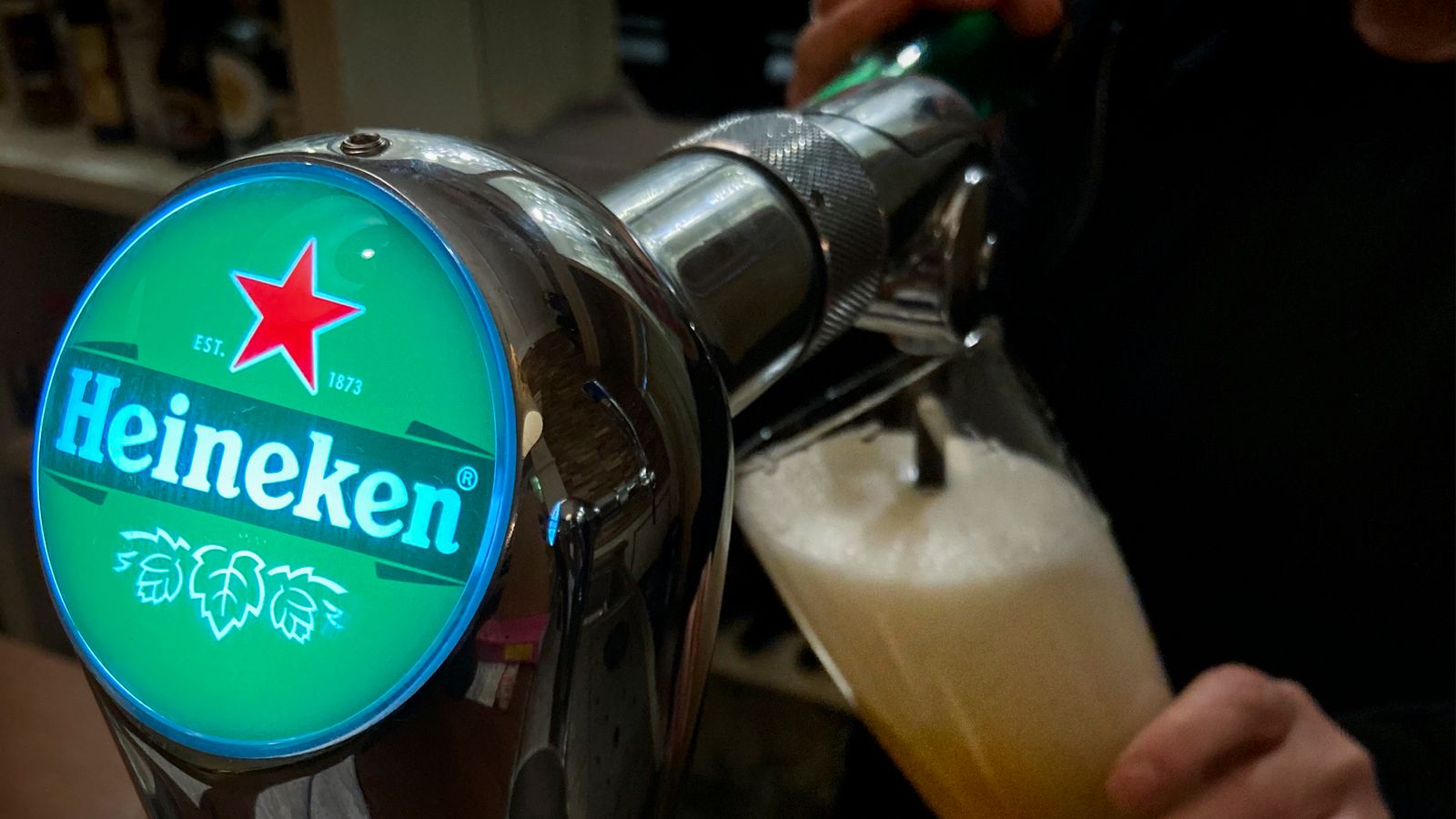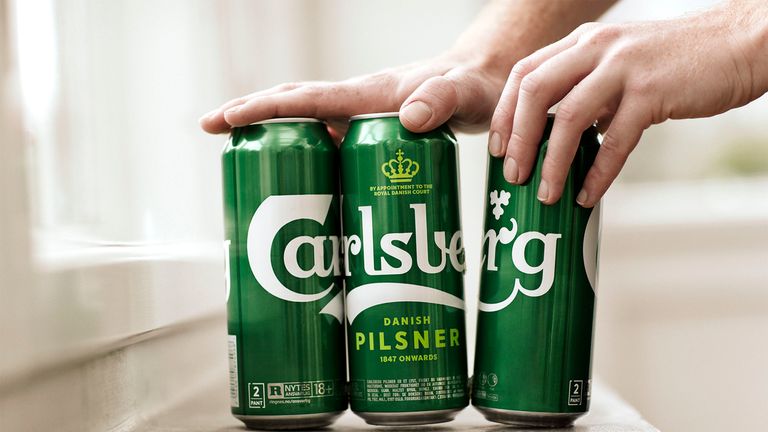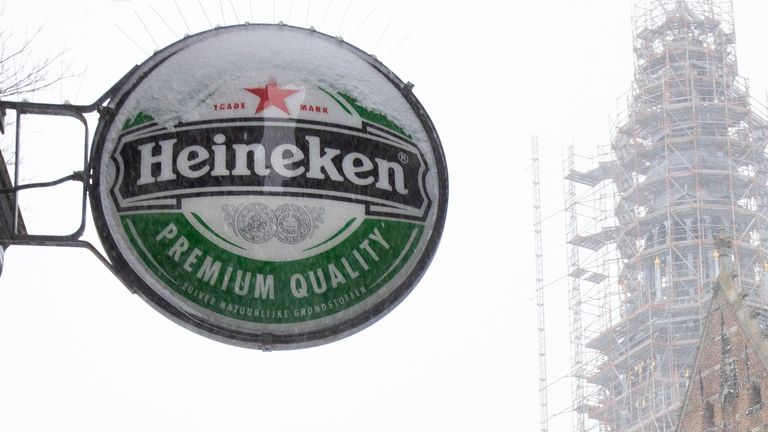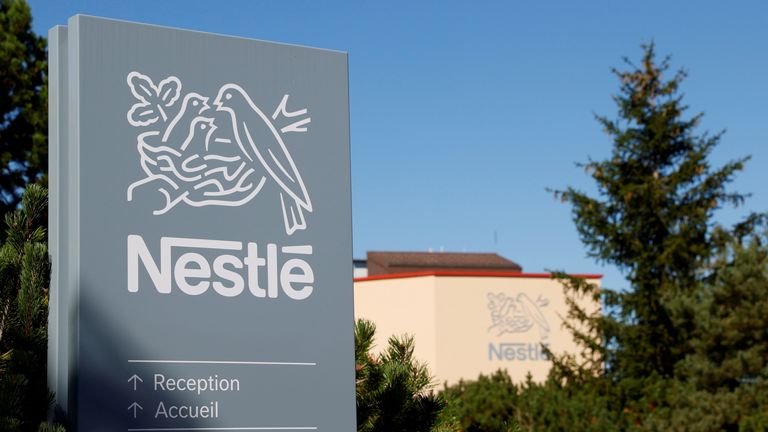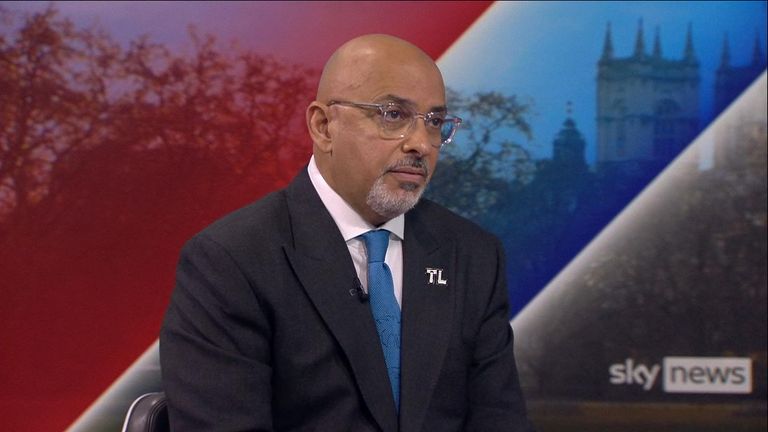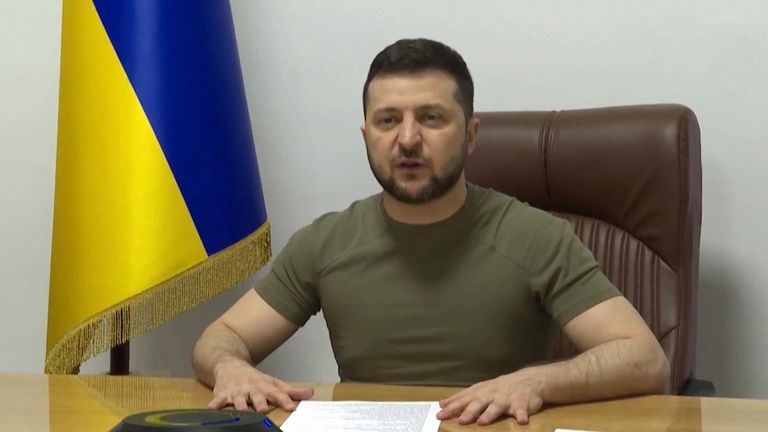Ukraine war: Heineken and Carlsberg exit Russia with one brand (probably) having more to lose
For the global brewers, as they grapple with changing consumer tastes and gently declining beer consumption in established markets like the US, Germany, the UK and Japan, Russia has been comparatively resilient.
Russia, the world’s fifth largest country in terms of overall beer drinking, was one of the few major markets around the world where beer consumption actually rose during the pandemic-hit year of 2020. It also grew by a further 3.3% during 2021.
That is why the decisions today from Carlsberg and Heineken to pull out completely from Russia will have been difficult.
For Carlsberg, in particular, this is a big deal. The Danish group owns Baltika, Russia’s biggest brewer, which has a market share of just shy of 30%. Carlsberg, which last year made 10% of its total sales and 6% of its operating profits in Russia, had already said that it will stop selling its flagship brand there and will not make any new investments in the country.
Cees ‘t Hart, Carlsberg’s chief executive, said the company deeply regretted the consequences of its decision for its 8,400 employees in Russia but made clear it had had little choice.
He said: “The war in Ukraine, and the escalating humanitarian and refugee crisis, shocks us all. We continue to strongly condemn the Russian invasion, which has led to so much loss of life, devastation and human tragedy.
“On 9 March, we announced a strategic review of the Carlsberg Group’s presence in Russia. Based on this review, we have taken the difficult and immediate decision to seek a full disposal of our business in Russia, which we believe is the right thing to do in the current environment. Upon completion we will have no presence in Russia.”
He said Carlsberg would incur a “substantial” impairment charge on the disposal but declined to give further details.
Shares of Carlsberg, which had fallen by 22% since Russia invaded Ukraine, rallied by just under 3.5% on the news.
The Danes probably had little choice in the matter after, earlier in the day, Heineken announced it was pulling out of Russia.
It is a slightly less painful decision for the Dutch giant, which is second only to US giant AB InBev in the global brewing league table, as Russia makes up around 2% of global sales.
Heineken will take a €400m hit as it seeks “an orderly transfer” of the business to a new owner. It will not seek to profit from the disposal. The company had previously halted the sale, production and advertising of the Heineken brand in Russia and had suspended new investments and exports to the country.
Heineken, whose local beer brands in Russia include Bochkarev, Okhota and Tri Medvedya, is the third largest player in the country with roughly 10% of the market.
It said: “We are very shocked and very saddened to see the war in Ukraine continuing and escalating.
“Following the strategic review of our operations already announced, we have concluded that Heineken’s ownership of the Russian business is no longer sustainable or enduring in the current context.”
The decisions from Carlsberg and Heineken to withdraw completely from Russia will put further pressure on a number of other western consumer goods companies.
To date, only a handful have pulled out of Russia completely, among them the UK tobacco giants Imperial Brands and British American Tobacco.
But the likes of Nestle, Procter and Gamble, Reckitt, Unilever, PepsiCo and Danone have all, to date, decided against a complete pull-out from Russia and have continued to sell some products judged to be essential.
That has proved controversial and Nestle, in particular, has come under fire for its approach.
Denys Shmyhal, Ukraine’s prime minister, had tweeted on 17 March: “Talked to Nestle CEO Mr Mark Schneider about the side effect of staying in Russian market. Unfortunately, he shows no understanding. Paying taxes to the budget of a terrorist country means killing defenceless children and mothers. Hope that Nestle will change its mind soon.”
The Swiss giant subsequently widened the number of brands it will no longer sell in Russia.
Aside from the other big consumer goods companies, Carlsberg and Heineken’s move will throw a spotlight on the other big international brewers playing in the relatively consolidated Russian market.
Sitting between the pair In second place, with a market share of 27%, is a joint venture between AB Inbev, the owner of Budweiser and Anadolu Efes, the Turkish brewer.
The pair operate 11 breweries and three malt factories in Russia and employ some 3,500 people in the country. Efes is the controlling partner and there are thought to have been disagreements between the pair as to how to go forward. AB Inbev reportedly asked its Turkish partner to suspend the sale and production of Budweiser in Russia more than two weeks ago but Efes is understood to have argued against a complete shutdown on the grounds that this would hurt its local employees and the farmers who supply the business.
The partnership has continued to produce beers other than Budweiser but AB Inbev has since sought to ring-fence its interests in the country and has pledged to forego any profits from Russia. A decision to completely exit Russia would be painful for Efes since the country is estimated to account for some 44% of its sales and 34% of its earnings.
Expect pressure to mount on them both to announce a full withdrawal in coming days.
For Carlsberg, in particular, it is the end of an era and the latest twist in a story that is intertwined with that of Scottish & Newcastle, the last of the so-called ‘Big Six’ British brewers, all of which have now disappeared into foreign hands.
S&N acquired a 50% shareholding in BBH, the owner of Baltika, when it bought Hartwall, a Finnish drinks group, for £1.2bn 20 years ago. Its co-owner was Carlsberg and the business thrived under the pair’s joint ownership, buying up a number of smaller competitors and becoming a major source of growth, particularly as Russian beer consumption grew during the mid-noughties while beer drinking stagnated or fell elsewhere.
S&N even struck a deal to produce Baltika, Europe’s third-biggest beer brand after Heineken and Amstel, in 2007.
At the time, the move seemed a masterstroke, enabling S&N to tap into the growing number of Russians moving to Britain.
It was the first time a Russian brand had been licensed to a western company and, in a signing ceremony at Edinburgh Castle, Baltika’s president, Anton Artemiev, said: “The start of licensed production in western Europe of Baltika is a natural step in the process of integrating Russia into the world economy.”
How long ago that now seems. Carlsberg and Heineken teamed up to buy S&N for £7.8bn in March 2008 and, as part of the deal, Carlsberg took full control of Baltika.
The takeover was completed just as the global financial crisis was erupting and, subsequently, the pair were widely thought to have overpaid for S&N.
It is a reasonable bet, particularly in the wake of today’s news, that the Danes, especially, now regret the move.
For all the latest business News Click Here

